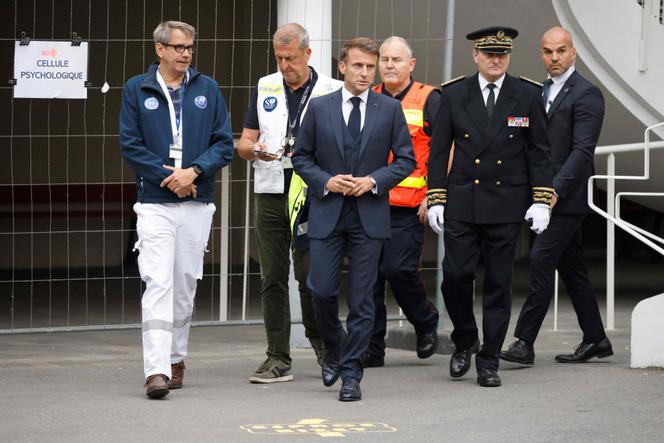


Under the fear of terrorism and the "atmosphere of jihadism" that has hung over France since the Hamas terrorist attack on Israel on October 7, in the words of Interior Minister Gérald Darmanin, the government must now deal with their challenges. Three days after the murder of Dominique Bernard, a literature teacher in Arras, northern France, by a radicalized young Islamist, Mohammed Mogouchkov, originally from Russia, the authorities were determined not to give the impression that Islamism was managing to disrupt democratic life and the government's agenda in France.
On Monday, October 16, French Prime Minister Elisabeth Borne was still scheduled to meet with trade unions to discuss wages and purchasing power. "We must collectively be vigilant without giving in to fear," she explained, the day before, in an interview with La Tribune Dimanche Sunday paper. While French President Emmanuel Macron had postponed his trip to Albania by a few hours, where he is due to attend a Balkan summit, he will be debating with American political scientist Francis Fukuyama, on Wednesday, on the theme: "Are democracies going to die?" "The choice has been made not to give in to terror," Macron has declared on Friday, from the Lycée Gambetta-Carnot in Arras, urging France to "remain standing."
And yet, as the offensive against Gaza intensifies day by day, domestic security in France is faltering. According to Borne, the war in the Middle East, where massacres of Israeli civilians have prompted massive bombings of Gazan civilians in response, "may have been a trigger" for the tragedy in Arras.
For the state leader, there have been other worrying dramas. On Saturday, three bomb threats forced the evacuation of the Louvre – where tourists left the Parisian museum in panic and tears – and then the Château de Versailles, before travelers at the Gare de Lyon were similarly forced out in terror. None of these alarms reflected an actual threat. But three years after the murder of Samuel Paty, a history-geography teacher, by an Islamist of Chechen origin, and eight years after the 13-November attacks, the terrorist risk once again has gripped France in a state of emergency alert since Friday.
"We have to live with this reality. Jihadism doesn't act sporadically. It creates a constant underlying atmosphere. We're faced with something that forces us to take a moral and political leap of faith," said former Interior Minister Manuel Valls, who feared in June 2016 that "more innocent people are going to lose their lives." In Le Parisien on Sunday, the man who was also François Hollande's prime minister said he was "haunted" by the words of Latifa Ibn Ziaten, the mother of the first person murdered by Mohammed Merah in 2012, who, after the trial of the terrorist's brother, had cried: "We're too naive in France, we need to wake up!"
You have 62.43% of this article left to read. The rest is for subscribers only.
